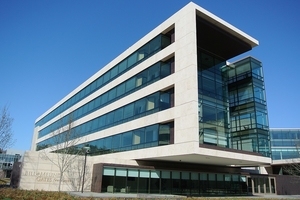According to Reuters, the European Union and the Gates Foundation are due to announce financial assistance for fledgling plans to establish an African medicines regulator to enhance the continent’s drug and vaccine production.
The African Medicines Institution (AMA) treaty entered into force in November, although the agency is now only operational on paper. The treaty establishing the AMA has been ratified by just over half of the 55 African Union (AU) member nations so far.
The provision of financial and technical assistance to the new agency is considered as critical in assisting it in launching operations. This would help the continent’s vaccine and pharma industries, which relies on a reliable regulator to thrive.
A person familiar with the initiative told Reuters that the European Commission, Germany, France, Belgium, and the Gates Foundation will pay more than 100 million euros ($113.93 million) to support AMA and African national regulatory authorities.
The goal is for these organizations to reach Maturity Level 3 for vaccine manufacturing, which the World Health Organization (WHO) describes as “the minimum WHO standard for effective regulatory monitoring for quality local vaccine production,” according to the official.
According to an internal EU Commission paper with slides seen by Reuters, a portion of the funds will be distributed as grants, with the remainder going to the European Medicines Agency.
According to the statement, the EMA, which is now Africa’s only drug regulator, will “offer technical help to African counterparts via scientific collaboration, joint inspections, training, and notably the AMA.”
Tedros Adhanom Ghebreyesus, Director-General of the World Health Organization, asked African countries to support efforts to establish the regulator, saying it may aid in the fight against counterfeit and low-quality medications.
“I believe this institution will be extremely essential for the continent,” says the author “In Cape Town, he stated. “I’d like to (appeal) to all non-ratifying countries to ratify and expedite the creation (of AMA).”
Soumya Swaminathan, the WHO’s chief scientist, said the AMA could play “the kind of role that the European Medicines Agency has played in Europe — defining standards, helping countries develop their regulatory bodies” at a previous occasion.
ENDING DEPENDENCE
After the COVID-19 epidemic exposed the region’s reliance on imported vaccinations and other drugs, the race to establish the AMA has begun. Local production accounts for just over 5% of medications and 1% of vaccines consumed by the 1.2 billion-strong population.
Africa initially struggled to obtain COVID-19 vaccine shots due to limited supply being purchased by wealthy countries. Deliveries to Africa have since increased, yet only 10% of Africans are properly vaccinated.
Increased production is currently being pursued, however medicine approval requires the approval of a regulator.
Experts warn that preparing for future pandemics is simply one of the reasons why Africa needs a continental regulator.
Due to inconsistent legislation in 54 countries and a lack of transparency, several pharmaceutical companies have abandoned efforts to register their goods, resulting in limited access to vital medicines in many African countries.
Due to a lack of strict control, counterfeit pharmaceuticals have flooded African markets, resulting in unnecessary deaths and fueling scepticism of medicine.
According to EU officials in Brussels, the EU’s attempt to back the new regulator is part of a larger strategy to counter Chinese and Russian influence in Africa. In the last year, Brussels has provided hundreds of millions of doses of COVID-19 vaccination to Africa.
Vaccine access will also be a major topic at a Brussels conference of EU and African Union leaders.
Margaret Agama-Anyetei, a senior AU official leading efforts to establish the AMA, stated that obtaining more AU member states to sign and ratify the treaty is one of the most pressing tasks.
“There are a plethora of fake certificates, fake drugs, fake masks, and fake medicine across the continent,” she told Reuters by phone from Addis Ababa. “It’s really important that we have a continental agency that is complementary to all other national health institutions and invested in promoting the regulation of medical products across the continent,” she said.

